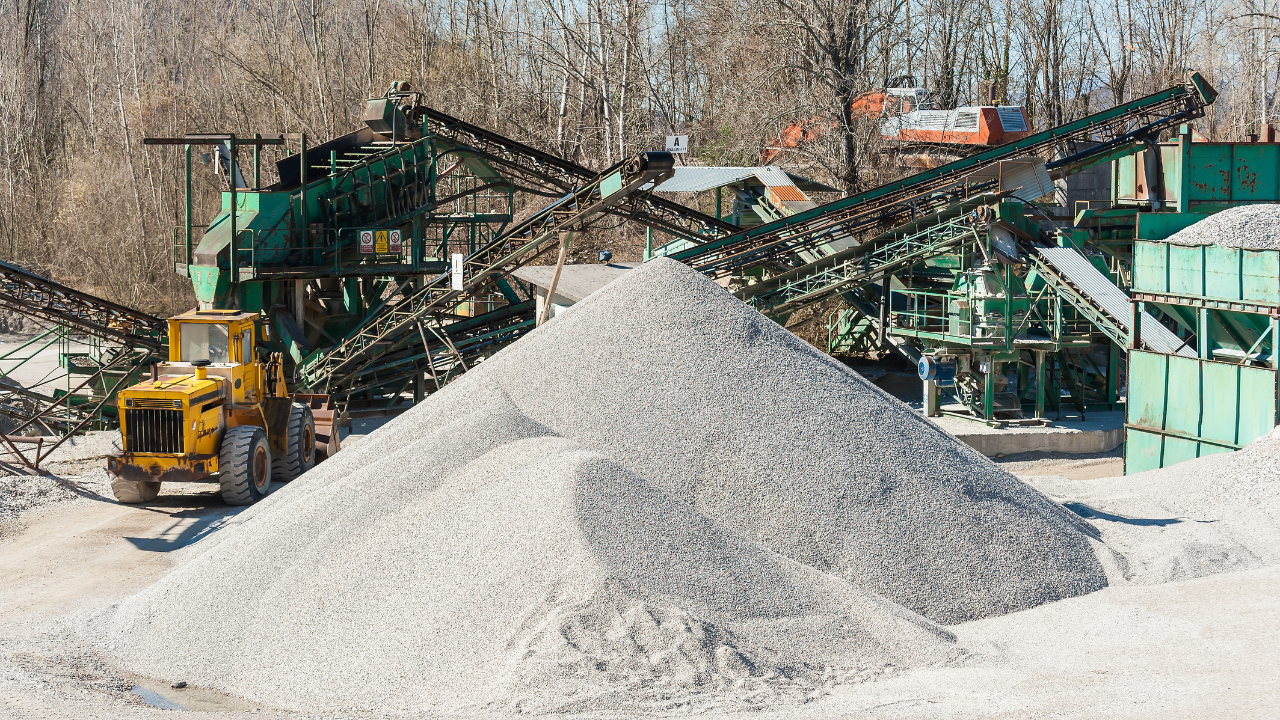Mobile stone crusher plants support today’s construction and mining operations. These machines bring efficiency and flexibility to material processing at construction sites. Your choice of equipment determines how well you produce materials while keeping costs under control and achieving operational targets. Knowing important industry factors helps you choose equipment that works well and produces more income.
What Is a Mobile Stone Crusher Plant?
A mobile stone crusher plant processes raw materials directly on-site. Unlike permanent crusher installations, these mobile systems can handle different work sites. Mobile crushers save on transportation expenses while speeding up work progress and transforming materials instantly.
The mobile crusher market offers multiple types of equipment for distinct processing needs. A jaw-mobile crusher handles hard materials effectively by crushing them at their primary stage. The cone mobile crusher system delivers controlled secondary and tertiary crushing operations to achieve reliable material size. The impact mobile crusher works best for medium-hard materials and produces superior output shapes. The portable screening plant speeds up operations by separating materials right at the source.
Assessing Your Crushing Requirements
Begin by selecting the crusher model that matches your project needs. Study how your raw material responds during processing, including its strength level and water absorption rate. Your crusher choice depends on both the size of output you need and the volume of material you need to handle. Opt for wheel-mounted or crawler-type crushers to move your equipment through difficult terrain.
Different crushers handle materials differently. Jaw crushers work best at crushing tough granite stones. Cone crushers show reliable results when processing iron ore and similar medium-to-hard materials. Impact crushers transform softer materials into consistent aggregates at high efficiency. Knowing how materials behave in different crushers helps you pick the right equipment.
How Each Mobile Crusher Works and Suits Specific Applications
A jaw-mobile crusher handles big, tough materials best, so it serves well as a primary crusher. These machines deliver stable performance and steady production results. Cone mobile crushers use their engineering to deliver exact material dimensions for secondary and tertiary work.
Impact mobile crushers process soft to medium-hard limestone with high efficiency. These crushers transform materials into usable aggregates while delivering top-quality results. The portable screening plant helps boost performance by organizing materials before they enter the production line. Putting materials through this system eliminates manual sorting tasks and helps operations run smoothly.
Understanding the Essential Elements of Mobile Crusher Plants
Your choice of crusher depends on how well it performs and works. A machine’s crushing power and efficiency levels directly affect its total output. For better operation, choose equipment that includes automation and remote control systems. Manufacturers now provide hybrid and electric power options to help plants save fuel costs and achieve better efficiency. Equipment durability increases with strong components, which reduces future upkeep expenses.
Cost Considerations: Budgeting for a Mobile Stone Crusher
Learning about expenses lets you make smart buying decisions. Buying a stone crusher first costs money, but running it over time also affects your profits. When estimating costs, remember to account for both replacement parts and maintenance expenses. Having spare parts on hand reduces downtime so your operations stay productive. Your decision becomes more informed when you assess how much output the machine delivers while being efficient and durable.
Installation, Setup, and Mobility Considerations
When deciding to use a mobile crusher, you need to assess site conditions and access. Installation procedures depend on the site conditions and project requirements. Selecting the best mobility solution helps you adapt to different situations. Wheel-mounted crushers move easily between projects, while crawler-mounted crushers effortlessly handle uneven ground surfaces. A mobile system saves money by processing raw materials where they are found instead of moving them to distant facilities.
Ensuring Long-Term Performance and Reliability
Regular maintenance helps crushers work longer. Routine inspections prevent unexpected breakdowns. The use of strong materials in construction helps machines last longer and needs less maintenance. Regular maintenance, including oil changes and replacement of worn components, makes the system work better. If you have technical support and spare parts available, you can keep production running smoothly. When you keep your crusher in good condition, you generate higher production volumes at lower operating expenses.
Conclusion
Deciding on a mobile stone crusher plant depends on your material type and production volume, plus your operational efficiency needs. Each crusher type performs unique tasks; when you pick the right one for your operation, you will see better production results. Evaluating how much a crusher can handle, along with its mobility fuel usage and upkeep expenses, helps you make a smart investment. Matching crushers with business requirements produces better performance at lower costs, which allows operations to run smoothly and generate higher profits.

